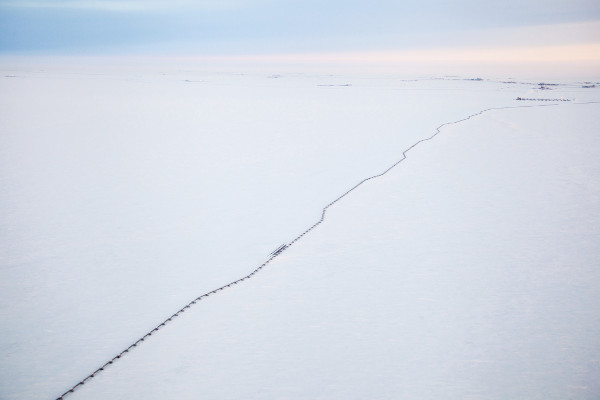Oil prices have drop down a 25% worldwide since June 2014. From roughly $100 a barrel in June 2014, today's price according to Nasdaq is about $ 47,37 a barrel (data from Nasdaq), and, experts say, prices are staying low for now.

The U.S. Energy Information Administration has therefore forecasted an an average price of $58 a barrel for 2015, while the investment banking firm Goldman Sachs has reduce it to $40 a barrel. The key point of this situation is oil production costs. In fact, whether oil production in the Middle East is very cheap, at an exstimated cost of less than $30 a barrel on average (which makes it profitable to sell even at this low price) the situation is completely different in the other region. For instance, in the US, it costs an average of $62 a barrel.
In the Arctic, where oil production is the most expensive in the world, producing a barrel costs $78 on average. As the prices on crude oil are now, experts foresee a sensitive slowdown on Arctic exploration and exploitation of oil resources, with consequences for its inhabitants. For example, in Alsaka, after years of high oil prices and surplus dollars, as reported by the" Eye on The Arctic", "it is suddenly expected to be $7 billion in the red this year and next. But that shortfall could be even worse if the price keeps falling. Most of the state's unrestricted funds come from oil revenue. State officials expect oil prices over the next 18 months or so to also average in the mid-$60 and mid-$70 range". In Russia, former prime minister and current foreign minister Yevgeny Primakov stated that, given the market situation, there is no rush to exploit Arctic offshore oil, as Russia has cheaper options to produce oil ( as for instance in Siberia). Again, as reported by "Eye on the Arctic": "Most [other] fields are already secured an acceptable return at a price of $60 dollars, and LUKOIL has said that production in Western Siberia is profitable even at $25,"he said according to RIA Novosti. However, when it comes to more 'problematic' oil, the situation is different, Primakov says: "Arctic offshore oil production is only profitable at an oil price of 100-120 dollars per barrel. Is it really worth boosting oil production on the shelf under conditions such as now?" "Despite the importance of the region to Russia, why should we not take a pause in development of Arctic oil and gas fields? Several of our competitors have already done it:USA drilled its last well on the Arctic shelf in 2003, Canada in 2005."
The current situation, however, has not stopped oil production and exploration, not even in the Arctic. "And that's the reason why companies are making these investments, because they're long-term investments in projects that are expected to provide very large quantities of oil and natural gas for the U.S. economy and for the global economy," says Erik Milito, director of Upstream and Industry Operations for the American Petroleum Institute.
Sources: Eye on the Arctic, NPR and Nasdaq.
